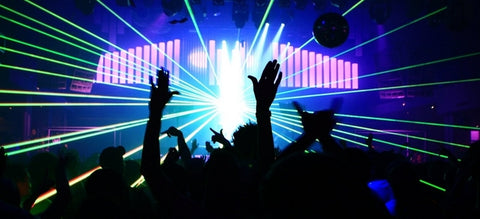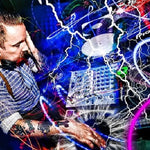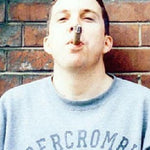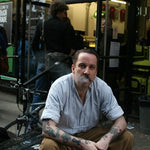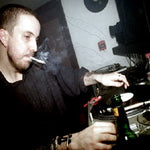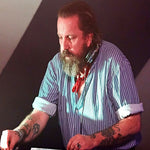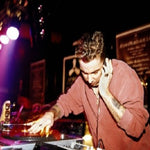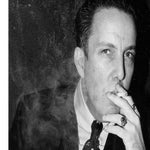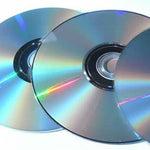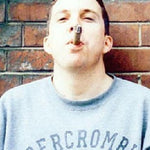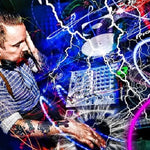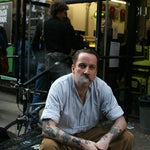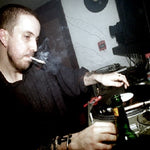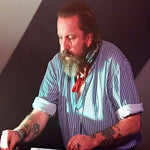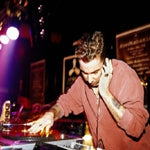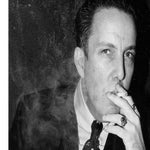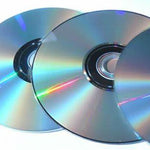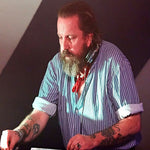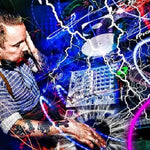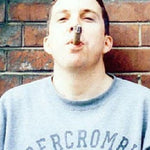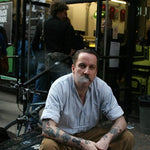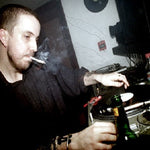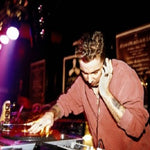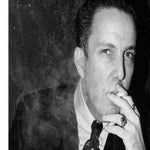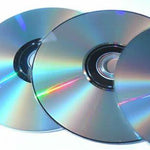“There was some music played when I was young, by my parents in my formative years. It was quite... looking back on it, it was quite inspirational, like the first time I ever heard Barry White. That was probably when I was about ten or eleven years old. My parents had this album called ‘Stone Gon’’ which is still one of my favourites. But in general, it was a little bit middle of the road. They had classic early seventies tastes, Neil Diamond, that sort of thing, which never really got me. I think most of my musical discoveries I made entirely myself. The biggest inspiration on me was probably when I was ten or eleven, I saw a trailer on TV for ‘That’ll Be the Day’, the David Essex film about rock ‘n’ roll and working on a fairground. It was the first time I realised there was this mystical world. It wasn’t just about the music, it was the clothes as well. I think that’s the moment I felt a tingle. The first two records I ever bought were T-Rex and Wizzard. And then when punk rock came along, that really scared them, you know, I wasn’t allowed to have punk records in the house, wasn’t allowed to have ‘Never Mind the Bollocks’. That was smuggled in, I hid it under my bed!
So you know, the parents were lovely people but they weren’t…there was no real…I don’t know where my musical…where it came from, I mean apart from just saying when you’re eleven or twelve years old, it’s very formative in all areas of your life and when you see shots of Teddy Boys and rock ‘n’ roll artists at that age, it turns your world upside down.Then the other thing was the David Bowie album ‘Pin Ups’. It had a brilliant picture of him on the back, in a blue suit with an eye patch and, you know, when you’re living in the suburbs… It wasn’t a horrible childhood but it was a little bit boring. And you see stuff like that and it makes you realise there’s a whole other life, it opens up worlds, not just musically, but facts and literature and everything… Teddy Boys, David Bowie, glam rock… I found it all off my own back. I didn’t have a mentor, or anyone that I looked up to or whose musical tastes I admired. I’m always looking and the search is sometimes more interesting than the actual finding of people’s music, or making the discovery.”
You weren’t getting into current things, by going to see a gig or hearing a band on the radio or seeing something on telly.
“No. And it wasn’t just the music either. It was the whole package, the whole pop package. It was the look, you know, it was kind of… I don’t know if you can think about glamour when you’re eleven or twelve years old, but I kind of did. To me, the music and the fashion, the music and the clothes were always together. Lots of bands I didn’t like – whose music I didn’t mind but the way they looked was rubbish - I kind of dismissed them. (laughs) Call me shallow, but it was just that introduction at an early age to the combination of music and clothes being able to shock people, especially with punk rock. In sort of lower-middle class suburbia, it really was like someone had let the devil out of the box, and the whole of civilization was gonna come crashing down. But to me, it was just great, short songs about girls, drugs, and hating everything like you do when you’re twelve, thirteen, fourteen. And that’s always been the package I’ve looked for in any sort of music.”
What were your very first projects? When did music stop being a hobby and start being a career, a full time occupation?
“Well, I never got to that point. It still strikes me as a hobby, I still feel like I’m the luckiest person around. I had knowledge, but I was also…in the early years I always seemed to be in the right place at the right time. And I know you can’t make a career on that, you gotta have something to back it up. But when I started, it’s different than it is now. Since I started buying records I would always kind of… corral people, like ‘come round and listen to this new track’. To me, DJing in a big club always has been just an extension of that, just wanting to play music and seeing that look on someone’s face, and sharing that enjoyment of hearing something for the first time that you had when you first got that record, even if it’s only three people in a bedroom. When I first started DJing it was the classic bag of records ‘round a friend’s house…then when I started playing at Shoom I still had a plastic record case out of Woolworths, which fell apart one evening at one of their outside gigs. It was only over the last five years that I considered myself a DJ, ‘cos when I first started, I just played records. I never saw it as a career, because I dunno… I thought of it as a job, but I never thought of it as a career. When you start thinking career, you start thinking ‘game plans’, and ‘I’ve gotta be at a certain stage’, and ‘oh, why am I still doing this’ if, you know, ‘my career should be here’. I’ve never thought of it as a career.”
So when you were doing clubs, promoting as well, it was more for the social aspect?
“Yeah, yeah, it was just that, it was just for the love of it. It was just that I didn’t want to do anything else. I’d done every rubbish job known to mankind and all of a sudden, people wanted to come and hear me play records or come to my parties. And that’s all it ever was and all it still is. You know what I mean? Call me an underachiever but I never… I think if you start thinking of it as a career, you start thinking you’ve gotta be here at a certain time, then you start taking shortcuts and start making the wrong kind of decisions, really. For a long time I put myself down and said it wasn’t a proper job. But it is, because I do…you know, at the moment, and for the last six years, I do twelve-hour days in the studio and then drive two hours and do a gig. That’s six days a week, sometimes seven. So it’s a job, but I’ve never thought of it as a career. I think there is a big distinction between the two, really…I’ve never been interested in careers, and music, to me, was always something that was about discretion, not about careers.”
Would you like to signpost anything from your production past? A few things that you feel people should have, especially for the newer converts?
“I think I had a stage two years back of really hating everything I did early on, ‘cos it was so naïve and I could see everything that was wrong with it. But then I was listening to some stuff the other night - I listened to some old tape when I used to play music on Kiss - and I was playing a lot of my productions. I’m actually beginning to like their naivety and roughness. It’s really weird ‘cos all my favourite music is really rough and badly played and usually badly recorded…so why shouldn’t I get the same enjoyment from my own rough, badly recorded, badly played music? You know what I mean? So yeah, I really like the My Bloody Valentine ‘Glider’ EP that I did, that’s quite a good early one. Any of the work with Primal Scream, obviously, has gotta be up there. And ‘Dexter’, the Villalobos remix on the CD, is one of my favourite things I’ve done in the last few years, ‘cos its not actually a remix. We couldn’t get the parts from him, so it’s us doing a cover version, taking a slightly different angle on things. We did it as a band, just kept playing the riffs over and over. I thought the bassline was pure Joy Division. So yeah, I’d say My Bloody Valentine, Primal Scream and then the Villalobos cover are three things people should hear to get a grip on what I do.”
Labels and Production is the next one. Of course there’s Warp…
“Yeah, we’re on Warp, and most of our output up until the last album has been pretty electronic based. But for the last album we decided to change it. We didn’t get rid of the electronics, it’s all written electronically then recreated live in the studio. It was just…I think what we do now it’s not…a step back but everyone has said that it sounds like Sabres [of Paradise, Andrew’s previous band]. It does, but I just think…I mean, it’s still rough and ready, and still sloppy, but I just think the production and the music quality and the skill behind it… In fifteen years I’ve learned a lot. I’ve learned how to make things rough and how to make things sloppy and how to make things immediate. I’m making music now that I was trying to make fifteen years ago, and I’ve actually reached a place where I’m probably the happiest I’ve been making music since I started. But that’s not to say that I’m satisfied, I’m never satisfied. Even the stuff I really like, I can still go back and pick holes in it. But I think that’s what drives people on. If you’re satisfied and slightly happy with what you’ve done, you’d - well I know I would - get up and do something else. But the fact remains that there’s still more music to be made and there’s still so much more work to be done. It’s the same with DJing, I’m never totally happy. I can have a thousand people screaming but I can always get back home and go, ‘well that mix was a bit shit’, you know what I mean? I think the fact that I pick holes and the fact that I’m a bit of a curmudgeon, works mainly to my disadvantage (laughs), but sometimes to my advantage, you know what I mean? It was funny: for years I did have a reputation for being rather unpleasant. And I probably was. But it was just a defence mechanism. I think if you go on the attack, you’re always slightly unhappy with yourself and what you’re doing…I use my curmudgeonliness for artistic reasons now, rather than just to upset people and make girls cry.”
You never want to stop DJing?
“Yeah, I do actually, usually at about six on Saturday when I’ve just got up, six in the evening, and I’ve got to get a really banging techno set together (laughs) although all I want to listen to is dub or something, or something a little more laid back. But even then it doesn’t…once I’ve passed that sort of barrier…I mean, it is hard work, but I never lose interest because if you have a good weekend DJing, you go into the studio on Monday full of really good ideas, rhythmic ideas. And you have a good week in the studio, which means you have a good week in general. It’s kind of like a train that keeps rolling, I couldn’t do one without the other. To be honest with you, the last couple of years I have thought, in the back of my mind, ‘what would happen if I gave up DJing or cut it right down?’ And then I thought ‘no, I can’t do it!’ As hard work as it is sometimes, it’s so helpful to the studio side of things to hear other people’s music, play it, kind of deconstruct it, and be blown away. You’ve gotta have that - people constantly raising the bar – and that’s what I like about playing other people’s music. When you get back to the studio in the week, you know you’ve got to exercise really high standards and high quality control. All the time, when I first started, I kind of…the quality control wasn’t all it should be. You know, I was a little bit arrogant. I was thrown into it, a young kid in the suburbs, and in a matter of months there’s these people telling you you’re the best thing since sliced bread. It can go to your head a little bit, so the quality control suffered. But as I got older and a little bit wiser, I realised I had to be on my game and not slack, and not be self-centred. I got to sit there and think ‘is what I’m doing (whether it’s playing records or making them), is it as good as what other people are doing?’ It’s a constant process of looking at yourself, whether you’re DJing or making music.”
What do you think of Fabric?
“To be honest, without sounding too cheesy, it’s one of my favourite places to play in Europe because it’s run well, everyone’s really helpful, and everyone’s got a love of music. Judy [Griffith]’s love of music is what makes the club so good. I don’t want to use the word ‘commercial’…but it is quite a commercial club, ‘cos it’s big, it has to have the commercial sensibility in the way it is run. But that never overshadows the artistic input that everyone puts into it, I mean it’s the perfect combination really, it’s good business and good artistic taste.
“Yeah, basically! And it’s a good blend of people that go down there, y’ know, everyone from like, sort of extreme trainspotting techno heads through to people that may have passed by and gone in on the off chance. And what you put on is just of such high quality. I mean, we get in e-mails all the time from people going ‘I just passed into Fabric to see whatever’, ‘cos they were tech house fans or something… ‘We wandered into your room… and what the fuck is that music?’ It’s a really good, open-minded crowd, listening to good music on a good system. You know, you can’t be more perfect than that, really.”
“Yeah, basically! And it’s a good blend of people that go down there, y’ know, everyone from like, sort of extreme trainspotting techno heads through to people that may have passed by and gone in on the off chance. And what you put on is just of such high quality. I mean, we get in e-mails all the time from people going ‘I just passed into Fabric to see whatever’, ‘cos they were tech house fans or something… ‘We wandered into your room… and what the fuck is that music?’ It’s a really good, open-minded crowd, listening to good music on a good system. You know, you can’t be more perfect than that, really.”
“Yeah, can you spot the weak link in the Two Lone Swordsmen setup? (laughs) I’ve always wanted to do live stuff, but live electronic music is usually really tedious. If I see another man hunched over a laptop, there’s going to be ultra-violence, I’m telling ya! You know, there’s very little physicality in live dance music, and obviously with our last album being very live, there was no danger of it being two blokes hunched over a laptop. So we decided to get a band together, and thankfully we’ve all known each other ten or fifteen years, it’s not like I’ve booked in session musicians and played the record to them. I think what can happen if people go down the live route with live musicians, is lose the band dynamic. All they’re doing is recreating. I won’t name names, but I’ve seen certain acts and they’re good, they’re all right, but you just know exactly where...there’s no dynamic. The best groups, the best live groups…like Primal Scream, when you watch them, you think the whole thing is gonna fall apart around your ears any minute, but it never does, it always keeps you on the edge. So hopefully that’s what we’ll achieve when we play live, it’s that kind of tension that you don’t get with preset, laptop, live music. But it’s always nerve-wracking singing. I’ve not sung for twenty years. I was in bands when I was a kid but…look forward to seeing me being pushed on stage, with a big pole or something, to get me up there. Then again, that kind of nervousness and that kind of tension will hopefully contribute to the music. I get nervous and I get scared every time I’m about to play records, but I think that edge is what… I dunno, it’s what being alive is about, is it not? Once things start getting easy, I always get a little bit bored and want to do something, anything else. So hopefully, I’ll remain petrified for the entire tour, with people thinking ‘Fuck, this is gonna collapse at any minute’, and it never will. I think that’s what we’re going for.”
Anything else to mention? Any projects?
“No, not really, like I say, again, it’s back to not treating it like a career. I’m quite happy, you know, if in ten years people like you still want to take me into a bar and ask me dumb-ass questions (laughs). I’d be quite happy if people are still that interested. I find it quite flattering that people are interested. I did go through a stage of being a bit, again, a bit arrogant and I didn’t want to talk. And then I thought ‘I’m not really ashamed of my past’ and I just want to keep on doing this. Yeah, I just want to be sat around somewhere talking about myself (laughs). Enough about me, let’s talk about me! Did I say my arrogance has subsided? Oh, I’m sorry!”
